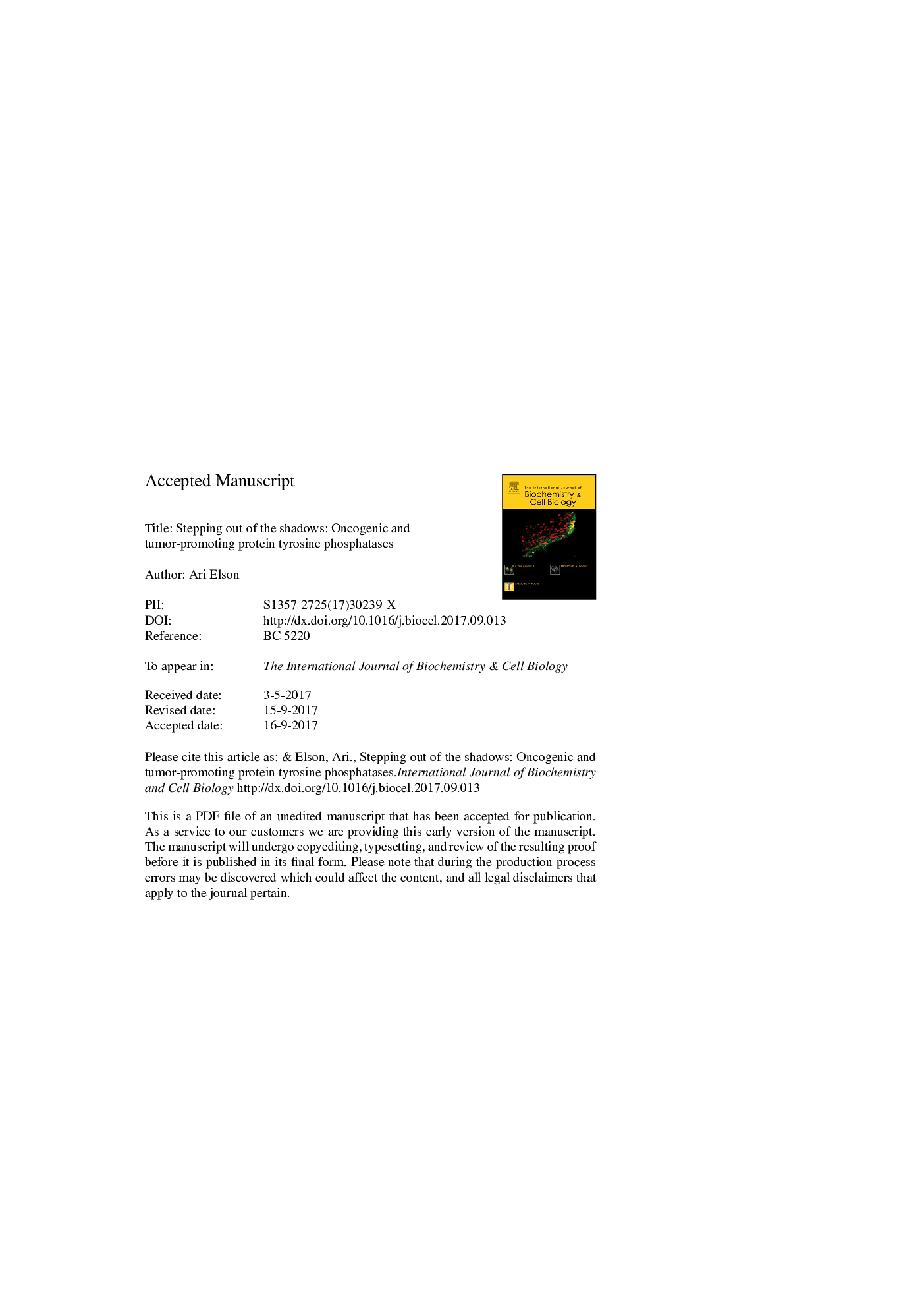| Article ID | Journal | Published Year | Pages | File Type |
|---|---|---|---|---|
| 8322037 | The International Journal of Biochemistry & Cell Biology | 2018 | 47 Pages |
Abstract
Protein tyrosine phosphorylation is critical for proper function of cells and organisms. Phosphorylation is regulated by the concerted but generically opposing activities of tyrosine kinases (PTKs) and tyrosine phosphatases (PTPs), which ensure its proper regulation, reversibility, and ability to respond to changing physiological situations. Historically, PTKs have been associated mainly with oncogenic and pro-tumorigenic activities, leading to the generalization that protein dephosphorylation is anti-oncogenic and hence that PTPs are tumor-suppressors. In many cases PTPs do suppress tumorigenesis. However, a growing body of evidence indicates that PTPs act as dominant oncogenes and drive cell transformation in a number of contexts, while in others PTPs support transformation that is driven by other oncogenes. This review summarizes the known transforming and tumor-promoting activities of the classical, tyrosine specific PTPs and highlights their potential as drug targets for cancer therapy.
Keywords
AMLPDZSFKPTNGBMCLLSH2CMLPTPERKSH3FN3JMMLPI3KPTKRPTPSrc family kinaseMAPKPI(4,5)P2OncogeneTyrosine phosphataseBreast cancerVascular endothelial growth factorVascular Endothelial Growth Factor (VEGF)phosphatidylinositol-4,5-bisphosphatephosphoinositide-3-kinaseLymphomaacute myeloid leukemiaAcute lymphoblastic leukemiaB-cell chronic lymphocytic leukemiajuvenile myelomonocytic leukemiachronic myelogenous leukemiaALLProtein tyrosine phosphataseProtein tyrosine kinasemitogen-activated protein kinaseTumor promoterPleiotrophinextracellular signal-regulated kinaseGlioblastoma multiforme
Related Topics
Life Sciences
Biochemistry, Genetics and Molecular Biology
Biochemistry
Authors
Ari Elson,
